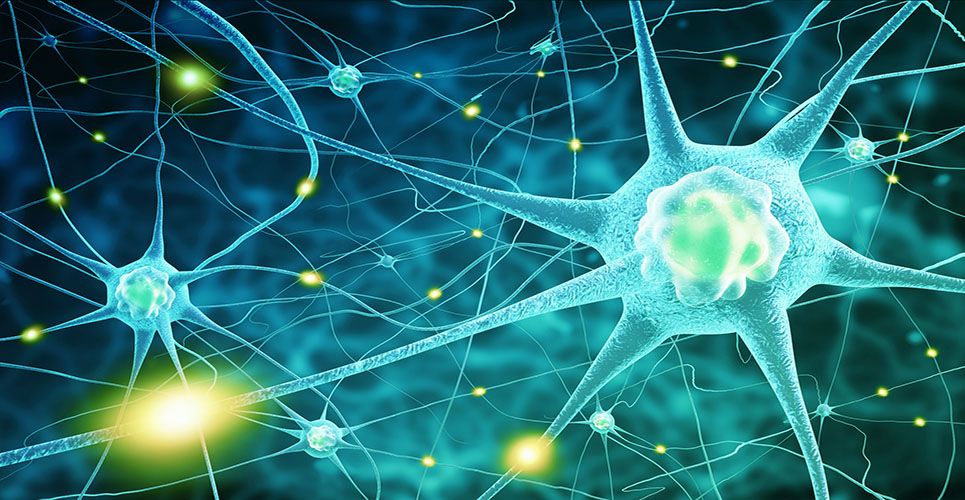Xia Lin
MD PhD
Research Fellow
Cris S Constantinescu
MD PhD
Consultant Neurologist
Senior Lecturer
Division of Clinical Neurology
Faculty of Medicine
University Hospital
Queen’s Medical Centre
Nottingham, UK
Multiple sclerosis (MS), a T-cell-mediated chronic inflammatory disease of the CNS characterised by demyelination and axonal loss, is a common cause of neurological disability in young adults, affecting over a million people worldwide. There have been important recent developments in the treatment of underlying disease using immunomodulatory drugs, which have been shown to be effective, particularly in relapsing disease (see the last issue of this journal for a topical review).
In this article, we concentrate on the pharmacological management of MS symptoms.
Spasticity
This is one of the most common symptoms of MS, causing difficulty in walking or in using the hands. Baclofen is the most widely used antispastic agent in MS,(1) and several studies have shown that long-term, high-dose oral baclofen is effective in spasticity management of MS. Side-effects are transient and include drowsiness, sedation and muscle weakness. Intrathecal baclofen is effective in reducing spasticity in MS. However, this treatment is invasive and prone to complications, and is thus reserved for patients with severe refractory spasticity.
” Tizanidine (an alpha(2)-adrenergic agonist) has been shown to reduce spasticity without major adverse effects on muscle strength ”
Tizanidine (an alpha(2)-adrenergic agonist) has been shown to reduce spasticity without major adverse effects on muscle strength.(1) It is an effective and well-tolerated agent for treatment of spasticity. Adverse events are dry mouth, drowsiness and rarely hepatic dysfunction. Diazepam and dantrolene are well-established, effective antispastic agents, but their use is limited by side-effects.(1) A double-blind, placebo-controlled trial in the UK is currently evaluating the efficacy of oral cannabinoids in reducing spasticity.
Weakness
This is one of the most common and disabling MS symptoms, caused by conduction delay and block in demyelinated axons. Drugs that enhance conduction may improve weakness and/or fatigue and may even reduce long-term disability. 4-aminopyridine and 3,4-diaminopyridine improve strength, reduce fatigue and increase motor function in MS.(2) Side-effects include lowered seizure threshold, nausea, paraesthesiae and insomnia.

” 4-aminopyridine and 3,4-diaminopyridine improve strength, reduce fatigue and increase motor function in MS ”
Fatigue
Fatigue is a frequent and major symptom experienced by 76–92% of MS patients. The mechanisms underlying fatigue may be due to neuronal and axonal loss or frequency- dependent conduction block in demyelinated fibres. Amantadine (up to 300mg/day) is effective in treating fatigue in MS, and improvement in some aspects of fatigue (such as energy levels, sense of wellbeing or problem- solving capacity) has been reported.(3) Aminopyridines and modafinil also reduce fatigue.
Ataxia and tremor
Ataxia and tremor are the most common movement disorders and most difficult symptoms to manage effectively in MS. Isoniazid has shown some efficacy with action on postural tremor. Glutethimide and ondansetron have also been reported to be effective in the management of cerebellar tremor.(4) Cannabinoids have been suggested to have an effect on disabling tremor and ataxia. Gabapentin, clonazepam and topiramate, among other drugs, have had anecdotal success. Physiotherapy and occupational therapy may improve activities of daily living in MS patients with ataxia.
Paroxysmal painful syndromes
Paroxysmal painful syndromes are brief episodic, frequent and repeated, stereotypical symptoms often experienced by MS patients. The most frequent are trigeminal neuralgia and tonic spasms. They both improve with carbamazepine or gabapentin or other antiepileptics.(5) Trigeminal neuralgia also responds to the prostaglandin-E1 agonist misoprostol by an effect on mediators of painful inflammation of trigeminal nerve roots.
Bladder dysfunction
Impaired bladder control affects up to 75% of patients with all forms of MS at some stage during the course of the disease. The most common urinary symptom in MS is urgency due to underlying bladder hyperactivity (detrusor hyperreflexia). The combination of an anticholinergic and intermittent catheterisation is the optimal treatment for patients with bladder symptoms due to MS who have detrusor hyper-reflexia as well as incomplete emptying. Bladder stimulators are helpful for the latter patients. Oxybutynin in an initial starting dose of 2.5mg twice a day may be effective, and can be increased up to 5mg three times a day. A common side-effect is dry mouth. Desmopressin, a synthetic antidiuretic hormone, is used in patients who are troubled by nocturia.
Conclusion
The treatment of the multitude of symptoms associated with MS remains an integral and important part of the overall management of this chronic disabling condition, and may lead to significant improvement in the patients’ quality of life.
References
- Kita M, Goodkin DE. Drugs used to treat spasticity. Drugs 2000;59:487-95.
- Sheean GL, Murray NM, Rothwell JC, et al. An open-labelled clinical and electrophysiological study of 3,4 diaminopyridine in the treatment of fatigue in multiple sclerosis. Brain 1998;121:967-75.
- Branas P, Jordan R, Fry-Smith A, et al. Treatments for fatigue in multiple sclerosis: a rapid and systematic review. Health Technology Assessment 2000;4:1-61.
- Rice GP, Lesaux J, Vandervoort P, et al. Ondansetron, a 5-HT3 antagonist, improves cerebellar tremor. J Neurol Neurosurg Psychiatry 1997;62:282-4.
- Khan OA. Gabapentin relieves trigeminal neuralgia in multiple sclerosis patients. Neurology 1998;51:611-14.
Resource
International Federation of MS Societies
W:www.ifmss.org.uk
